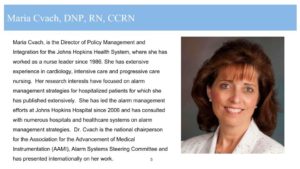The Physician-Physician Alliance for Health Safety has released a clinical education podcast on capnography monitoring during conscious sedation with Barbara McArthur, RN, BScN, CPN(C). Ms. McArthur is an advanced practice nurse at Sunnybrook Health Sciences Centre in Toronto, Canada.
Capnography Monitoring: An Early Indicator of Patient Deterioration
After reviewing the current literature, Sunnybrook decided that monitoring with capnography resulted in safer patient care. Capnography monitoring provides an early indicator of patient deterioration, which can be crucial in averting adverse events and patient deaths. Capnography monitoring, says Ms. McArthur, is monitoring in “real time. With pulse oximetry, there is a delay, which could be up to a minute in healthy patients. So, that’s a significant sort of time that is delayed that reaction could happen.”
Continue reading “Capnography Monitoring During Conscious Sedation:” →
